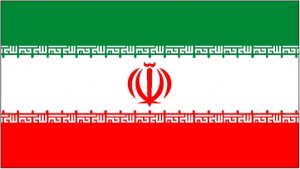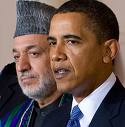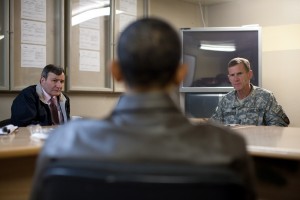Wednesday
Mar312010
The Latest from Iran (31 March): Nuclear Chatter & Political Prisoners
 Wednesday, March 31, 2010 at 19:14
Wednesday, March 31, 2010 at 19:14  2000 GMT: Political Prisoner Watch. The physicians of Ebrahim Yazdi, the 78-year-0ld former Foreign Minister and leader of the Freedom Movement of Iran, have requested an extension of his temporary leave from prison on grounds of ill health.
2000 GMT: Political Prisoner Watch. The physicians of Ebrahim Yazdi, the 78-year-0ld former Foreign Minister and leader of the Freedom Movement of Iran, have requested an extension of his temporary leave from prison on grounds of ill health.UPDATED Iran Politics and Music Video: “Karroubi” and the Arrest of Sasi Mankan
UPDATED Iran Appeal: Japan’s Deportation of Jamal Saberi
Iran: Preventing Tehran from “Going Nuclear” (Ramazani)
Iran Politics and Music: Sasi Mankan’s “Karroubi”
Iran: The Green Movement’s Next Steps (Shahryar)
The Latest from Iran (30 March): Strategies
1840 GMT: Political Prisoner Watch. Kalemeh reports that reformist journalist Masoud Lavasani will be set free tonight on a bail of around $500,000, four months after his arrest.
Bastani's initial prison sentence was reduced from 8 1/2 years to 4 1/2 years after appeal.
It is reported, from human rights activists in Iran, that Jafar Ashari who has been on hunger strike since March 17, has been transferred to Mahabad prison and is now in quarantine. Ashari has been in detention for more than five months.
1835 GMT: The Nuclear Defector. Press TV publishes an account, from Iranian state media, of "Missing Iran N-scientist 'defected to US'". What is interesting is that there is no denial of Shahram Amiri's claimed position in Iran's nuclear programme.
That means that, contrary to its initial position, the Iranian Government is no longer denying that Amiri is a nuclear scientist while the US Government is no longer denying that it is involved in Amiri's disappearance.
1500 GMT: More US-Iran Fencing. This time, the sparring is over Afghanistan, with the US military setting up Iran as a negative influence rather than a possible ally. The Chairman of the Joint Staff, Admiral Mike Mullen, told a news conference in Kabul:
Iran is working to increase its influence in the area. On the one hand, that's not surprising, she is a neighbor state, a neighbor country. On the other hand, the influence I see is all too often negative. I was advised last night about a significant shipment of weapons from Iran into Kandahar, for example.
I have seen them over the last several years -- the last couple of years anyway, certainly be more than just interested, provide some capabilities. I am also concerned that that desire to be influential is increasing....I was taken aback. [The arms shipment] wasn't insignificant.
1355 GMT: More on Iran Air in Europe. An EA reader sends us an update:
Ramp checks on Iran Air - which has been subject to US Government sanctions - have turned up evidence of "insufficient oversight" over the past year, says the Commission.
But Iran Air will still be permitted to operate 18 Airbus A300/310s, nine Boeing 747s, six Airbus A320s and a single Boeing 737 into Europe.
The Commission says it will send representatives to Iran over the next few months to examine the situation with Iran Air.
1040 GMT: Nuke Chatter Continues. Iranian state media is reporting that Saeed Jalili, the Secretary of the National Security Council and the country's primary negotiator on nuclear issues, will visit China tomorrow for discussions.
0645 GMT: Trouble in the Air? An Iran Air official claims that, despite the European Commission's ban on the airline within Europe, that "nothing has changed" and no restrictions have been imposed on the airline.
An EA correspondent offers a contrasting view: "Even though the ban is limited in financial terms, its international outcome is devastating. From now on the regime must answer the question, for all of its boasting, if it is able to provide essential safety for its airplanes. This ban is the best reply to Iran's jamming of European satellite broadcast, as the safety issue is untouchable."
0635 GMT: Political Prisoner Resistance Watch. Rooz Online reports on the defiance, often humourous, of political prisoners.
0610 GMT: Political Prisoner Watch. Rah-e-Sabz reports on the poor conditions and hygiene in the women's section of Evin Prison.
Christian pastor Wilson Issavi has been released on bail after 54 days in detention.
Rah-e-Sabz writes that 51-year-old university instructor Rahmatollah Bastani has been re-arrested by the Intelligence Bureau in Qom. Bastani was one of 30 people detained during Sunday's funeral for the wife of the late Grand Ayatollah Montazeri. He was released five hours later but was summoned on Monday for further interrogation.
0555 GMT: Economy Watch. Asre Iran reports that some Kuwaiti banks have stopped dealing with their Iranian counterparts, who have protested to the Kuwaiti Central Bank about the "unbearable injustice".
0545 GMT: Subsidy Watch. Back to more pressing concerns for most Iranians and for the President. In an unprecedented move, Ahmadinejad has proposed an "addendum" to the Parliament's approved budget, allowing him access to the extra $20 billion of revenues he wants from subsidy cuts.
0500 GMT: Lots of white noise about the Iranian nuclear programme yesterday and this morning.
Following this week's New York Times wayward article on supposedly secret Iranian nuclear site, The Washington Times goes farther by mangling --- through misunderstanding or wilful distortion --- a story on the latest public US intelligence finding on Tehran's nuclear development. The newspaper headlines, "Iran is poised to begin producing nuclear weapons after its uranium program expansion in 2009, even though it has had problems with thousands of its centrifuges."
The report says no such thing. Here's the take-away, as noted by other Iran observers:
We continue to assess Iran is keeping open the option to develop nuclear weapons though we do not know whether Tehran eventually will decide to produce nuclear weapons. Iran continues to develop a range of capabilities that could be applied to producing nuclear weapons, if a decision is made to do so.
During the reporting period, Iran continued to expand its nuclear infrastructure and continued uranium enrichment and activities related to its heavy water research reactor, despite multiple United Nations Security Council Resolutions since late 2006 calling for the suspension of those activities. Although Iran made progress in expanding its nuclear infrastructure during 2009, some obstacles slowed progress during this period.
The misleading story seems to have disappeared with little notice, replaced by an intriguing claim:
An award-winning Iranian nuclear scientist, who disappeared last year under mysterious circumstances, has defected to the CIA and been resettled in the United States, according to people briefed on the operation by intelligence officials.
The officials were said to have termed the defection of the scientist, Shahram Amiri, "an intelligence coup" in the continuing CIA operation to spy on and undermine Iran's nuclear program....
Amiri, a nuclear physicist in his early 30s, went missing last June three days after arriving in Saudi Arabia on a pilgrimage.
On the political front, President Obama maintained the public stance of US and international pressure on Tehran, declaring at a press conference with visiting French President Nicolas Sarkozy:
I'm not interested in waiting months for a sanctions regime to be in place....I am interested in seeing that regime in place in weeks. And we are working diligently with our international partners, emphasizing to them, that as Nicolas said, this is not simply an issue of trying to isolate Iran, it has enormous implications for the safety and the security of the entire region.
tagged  Afghanistan,
Afghanistan,  Barack Obama,
Barack Obama,  Ebrahim Yazdi,
Ebrahim Yazdi,  European Commission,
European Commission,  Evin Prison,
Evin Prison,  Freedom Movement of Iran,
Freedom Movement of Iran,  Iran,
Iran,  Iran Air,
Iran Air,  Kalemeh,
Kalemeh,  Mahmoud Ahmadinejad,
Mahmoud Ahmadinejad,  Masoud Lavasani,
Masoud Lavasani,  Mike Mullen,
Mike Mullen,  New York Times,
New York Times,  Nicolas Sarkozy,
Nicolas Sarkozy,  Nuclear Weapons,
Nuclear Weapons,  Press TV,
Press TV,  Rah-e-Sabz,
Rah-e-Sabz,  Rahmatollah Bastani,
Rahmatollah Bastani,  Saeed Jalili,
Saeed Jalili,  Shahram Amiri,
Shahram Amiri,  Washington Times,
Washington Times,  Wilson Issavi in
Wilson Issavi in  Middle East & Iran
Middle East & Iran
 Afghanistan,
Afghanistan,  Barack Obama,
Barack Obama,  Ebrahim Yazdi,
Ebrahim Yazdi,  European Commission,
European Commission,  Evin Prison,
Evin Prison,  Freedom Movement of Iran,
Freedom Movement of Iran,  Iran,
Iran,  Iran Air,
Iran Air,  Kalemeh,
Kalemeh,  Mahmoud Ahmadinejad,
Mahmoud Ahmadinejad,  Masoud Lavasani,
Masoud Lavasani,  Mike Mullen,
Mike Mullen,  New York Times,
New York Times,  Nicolas Sarkozy,
Nicolas Sarkozy,  Nuclear Weapons,
Nuclear Weapons,  Press TV,
Press TV,  Rah-e-Sabz,
Rah-e-Sabz,  Rahmatollah Bastani,
Rahmatollah Bastani,  Saeed Jalili,
Saeed Jalili,  Shahram Amiri,
Shahram Amiri,  Washington Times,
Washington Times,  Wilson Issavi in
Wilson Issavi in  Middle East & Iran
Middle East & Iran 


